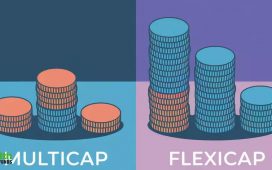In a stock exchange notice today (20 October), the board said Young will also be retiring from abrdn, where he has worked since 1985, at the end of this year, leaving behind a 43-year career.
The lead manager of the trust will now be Flavia Cheong, abrdn’s head of equities for the Asia Pacific region, who is joined by Gabriel Sacks and Xin-Yao Ng as co-managers.
Chair Krishna Shanmuganathan said: “Hugh has worked tirelessly on behalf of the Company since its launch and, both personally and on behalf of the Board, I would like to thank him and wish him the very best for his well-earned retirement.
“While Hugh leaves us in good hands with a high-quality team across Asia (over 40 investment personnel across six countries) continuing the vital on-the-ground research as part of the Company’s investment process, he will be much missed.”
Fidelity closes £7m Asia absolute return fund
In a research note, Numis analysts Ash Nandi and Gavin Trodd said that the “key news” from the results was Young’s retirement, which introduced an element of “key man risk”. However, they noted that successful planning has been “in the pipeline for a while”.
“However, succession planning has been in the pipeline for a while, with the appointment of Flavia Cheong as co-manager alongside Hugh Young and Gabriel Sacks back in November 2021,” they added. Xin-Yao Ng has also been appointed as a co-manager.
The managers have worked alongside Young for 15 and five years respectively, which the analysts believed “should ensure a smooth transition”.
According to its annual results to the end of July, the trust delivered a NAV total return of 7.6%, compared to the MSCI AC Asia ex-Japan Small Cap index, which gained 8% during the period.
Since 31 July, its NAV is down 2.2%, compared to a 0.3% rise for the index, according to the Association of Investment Companies.
Investments in China, Hong Kong and Singapore dragged performance for the trust, with key detractors including Chinese JOINN Laboratories, Sinoma Science & Technology and Dah Sing, along with Singaporean holding company Yoma, according to the report.
However, the trust continued to add to its China position based on volatility and attractive valuation, aided by a change of mandate last year which saw the removal of the limit on company size at initiation.
Matthews Asia appoints CIO amid name change
The trust’s discount continued to widen, with its share price growing only 7.3% throughout the year, pushing its discount from 14% to 14.5%. The trust currently sits on a discount of 16.7%, according to data from the AIC.
Looking ahead, Sacks and Cheong said Asian small caps continue to offer significant value, pointing to the structural themes of “aspiration, building Asia, digital future, going green, health and wellness and tech enablers”.
“As a result, we continue to favour quality Asian small-cap companies with solid balance sheets and sustainable earnings prospects that can emerge stronger and position the portfolio well in tough times,” they added.
“While performance of small caps in the region can be volatile, given our in-house research capabilities, investment management focus and bottom-up analysis, we expect to deliver for our shareholders in the long run.”











